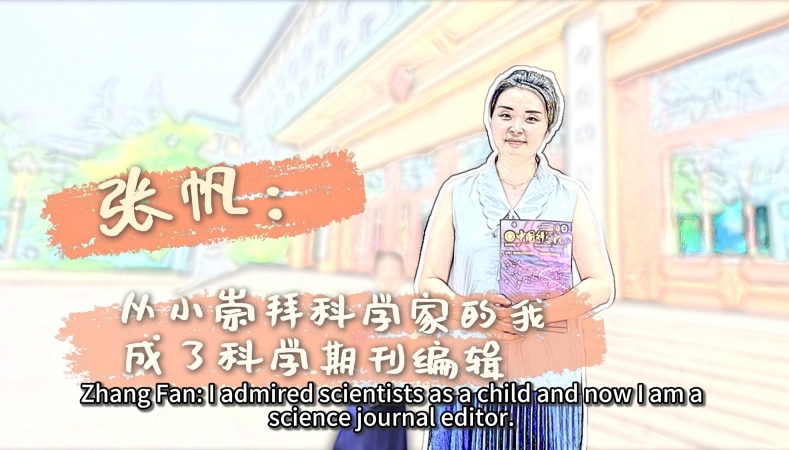Interaction with Shenzhou-14 Taikonauts Reinvigorates the Space Dreams of African Youth

Photo shows the view of a sub-venue of the event "Talk with Taikonauts" in Cairo, Egypt. (PHOTO: XINHUA)
On 6 September, three Chinese astronauts, Chen Dong, Liu Yang and Cai Xuzhe, talked from space via video link with students from at least eight African countries and shared their experience during Shenzhou-14 spaceflight.
Abdi Kumsa, 18, felt he is one step closer to his dream of becoming one of Africa's future astronauts after directly engaging with three Chinese taikonauts currently carrying out the Shenzhou-14 mission.
"I have been dreaming about becoming an astronaut since I was six or seven," said Kumsa, a 12th grader at the Oromia Development Association Special Boarding School Adama Branch in Ethiopia, who has a far-reaching life ambition of bringing the African continent closer to the rest of the developed world in outer space exploration.
"When Ethiopia launched its first satellite into space, I said there is a hope for me to become one of the future astronauts," he said, referring to the Chinese-backed satellite, abbreviated as ETRSS-1, that was launched into space from China in December 2019.
Through the dialogue with the three Shenzhou-14 taikonauts, Kumsa finally caught a glimpse of life in space, including how the taikonauts eat, sleep and bathe in a zero-gravity environment, and understood what it takes for one to be an accomplished astronaut.
"It really takes much effort. We have to work harder psychologically, physically and intellectually. We all need to work harder than what we are doing right now," Kumsa said.
The special session named "Talk With Taikonauts," which was co-hosted by the Chinese Mission to African Union (AU), the China Manned Space Agency and the AU Commission, presented a unique opportunity for young space-enthusiasts from eight African countries to have first-hand experience of space science and outer space exploration.
In particular, young space-enthusiast girls were inspired by the success of China's female astronaut Liu Yang.
Asked about the secret behind her achievement and her advice to women in Africa and elsewhere, Liu emphasized that "the stringent requirements in astronaut selection will not be relaxed for gender reasons. In the face of the same tasks and challenges, we need to double our efforts."
For Robe Ahmed, a 12th grader at Oromia Development Association Special Boarding School, Liu's advice became a springboard for her to pursue her childhood ambition of becoming an aerospace engineer.
"It really inspired me to see her in space because she was very confident. And she said we are equal so that we can do everything. She has inspired me and motivated me to do (more) and increased my interest in space," Ahmed said.
Such initiatives motivate young Africans to pursue astronomy and space science and inject much-needed impetus into African space science development, said Tidiane Ouattara, a space science expert at the AU Commission.
"It is an opportunity to motivate African young people, to show African young people that everything is possible," Ouattara told Xinhua.
The expert also commended China's "generosity" in sharing the fruits of its space science advancement with Africa and the rest of the world. "What is important is that China is doing it in an inclusive way," he said.
Ouattara emphasized that China's "remarkable" achievements in space exploration can serve as an instructive model for African countries and the developing world.
"The Africa-China cooperation is very well (advanced). In the space arena, very new in Africa, it is very important that China look at how space can fit into the different priorities of China-Africa relations," Ouattara added.
Ahmed and fellow youngsters also emphasized the importance of boosting China-Africa relations to create opportunities for young Africans to pursue space science.
Noting China's growing support to Ethiopia and other African countries in the education sector, Kumsa said similar Chinese engagements would further promote space science and technology in Africa.
Mohammed Belhocine, AU Commissioner for Education, Science, Technology, and Innovation, said during the special session that the vital interaction between African youth and taikonauts is an extension of broader China-Africa cooperation in space science and technology and future collaboration prospects.
"In the new space era, Africa is open for mutually beneficial cooperation, and it is ready for engagements on all kinds of win-win scenarios. I want to thank China for the deliberate engagements in space advancement in Africa," he said.
Hu Changchun, Head of the Chinese Mission to the AU, emphasized that China and Africa share the same dream of space exploration.
"I expect African youth to hone their skills, master high and new technologies, commit to the scientific development of nature and promote economic development," Hu said.
"I hope African youth can contribute to the building of an even closer China-Africa community with a shared future," Hu said, "and to the development and progress of mankind."
Source: XINHUA


